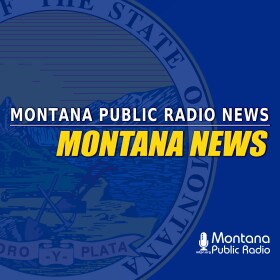-
Montana’s Department of Commerce recently awarded more than $300,000 in grants to Native-owned businesses across the state. The funds aim to support the economic development of tribal communities while supporting small businesses.
-
Two more measles cases have been confirmed in Montana. One case in Hill County exposed others in the community.
-
A group of young people are suing the Trump Administration for prioritizing the use of fossil fuels - and driving up planet-warming emissions. The suit was filed Thursday morning in Montana’s federal court
-
Frenchtown High School is celebrating a first-of-its-kind milestone in Montana. Nearly two dozen seniors are graduating with a year’s worth of college under their belts.
-
This year, 12 Native American legislators from across the state made up the Montana American Indian Caucus. The group was largely successful in passing policy with major impacts for tribal communities. "This session particularly felt that we were a force as the Montana American Indian Caucus," Rep. Tyson Running Wolf said.
-
For some families, it can be hard to feed their kids when school is out. But more communities are participating in free summer meal programs to help fill that gap.
-
State officials and the Confederated Salish and Kootenai Tribes (CSKT) this year gained sizable water rights east of Missoula. Last week, they solicited feedback from water users on how they intend to exercise that right.
-
Five grizzly bear deaths have been confirmed in Montana so far this year. Montana ranchers may qualify for meat processing settlement funds. Deer ticks, carriers of Lyme disease, detected in eastern Montana
-
Tourists contributed over $300 million to the state tax base and supported nearly 40,000 jobs in 2024. That’s according to a new report from researchers at the University of Montana. While that economic boost keeps most residents supportive of the industry, concerns about overcrowding are growing in gateway communities.
-
Sixteen young Montanan’s made headlines when they sued the state – and won – for failing to act on climate change. Republican state lawmakers lambasted the decision. They fast tracked a suite of bills during the 2025 legislative session to limit the ruling's impacts.
Play Live Radio
Next Up:
0:00
0:00
Available On Air Stations











